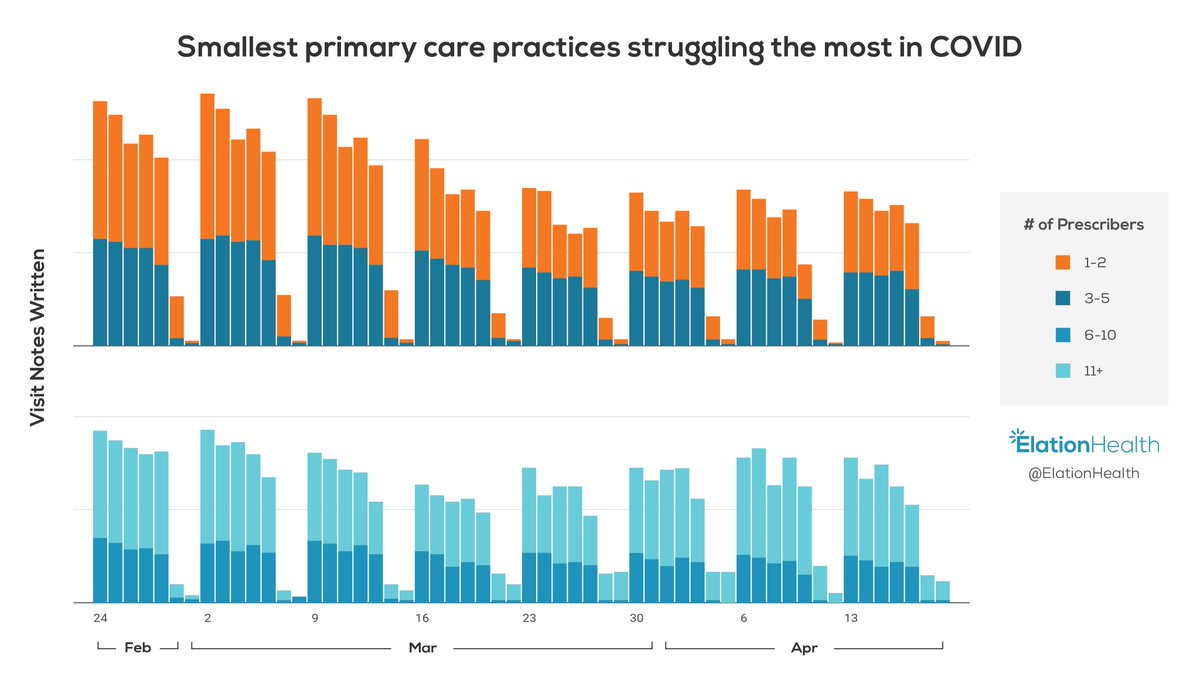Small primary care practices are disproportionately struggling with COVID-19

It’s been roughly five weeks since our country’s COVID-19 crisis started in earnest. In that time, we’ve seen bad news (and some good) for our network of independent primary care practices. This week, we’re looking closely at which practices are hurting and which are adjusting.
Our data shows that 1-2 prescriber practices are very much in crisis, with a 30 percent drop in charted patient visits that has stabilized but not rebounded. Practices of less than 11 prescribers are showing signs of recovery as they switch to virtual care.

Small primary care practices are 78% of Elation Health’s network, and they care for millions of patients in the US. They are a critical backbone of our healthcare system, providing the most cost-effective care, with the best outcomes, to the most vulnerable patients.
If we mobilise our national public health + primary care teams NOW for test, trace, isolate, with support from volunteers and communities, we can suppress this virus like S Korea. (17)
— Anthony Costello (@globalhlthtwit) April 22, 2020
As axios reported, COVID-19 is putting independent practices in a perilous position where selling out might be their only alternative to closing. Bad news for healthcare costs because “prices soar when physician practices are acquired.”
The coronavirus is battering doctors and may force them into two less-than-ideal options: sell their practice, which would further consolidate the industry and expose patients to higher costs, or close their doors for good. https://t.co/30nDAQyf73
— Bob Herman (@bobjherman) April 20, 2020
Advocacy group PCPCC surveyed practices and found that “20% of primary care practices now believe they will temporarily close within the next month.”
#primarycare practices are endangered from steep declines in revenue and staff when dealing with #Covid19usa, our latest survey of clinicians with @GreenCenterOrg shows. #HealthcareHeroes https://t.co/7EUOlttOfk
— PCC (@PCPCC) April 17, 2020
The grant and loan funding we saw last week did help. For lasting survival, these small practices need a lot of support on the switch to telemedicine and proactive, virtual care for their patients with chronic illness.
As the US and many other countries brace for an uptick in new infections, hospitalizations, and deaths due to #COVID-19, here is one other problem almost no one is talking about: long-term chronic illness.
— Jennifer Brea
(@jenbrea) March 14, 2020
As Bob J. Herman reported SBA loans were “an administrative nightmare for many doctors who applied” and that is just one of dozens of relief programs, each with its own exhausting process.






